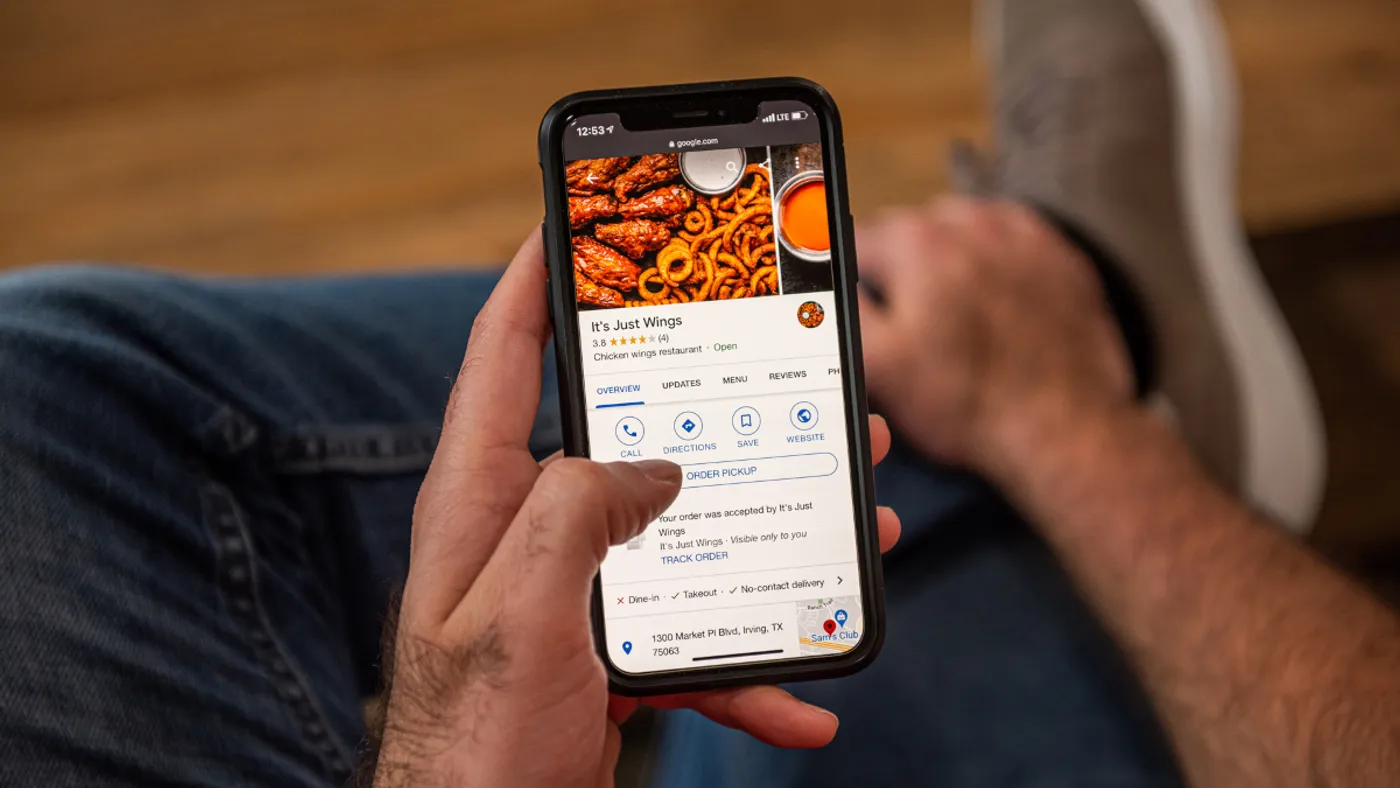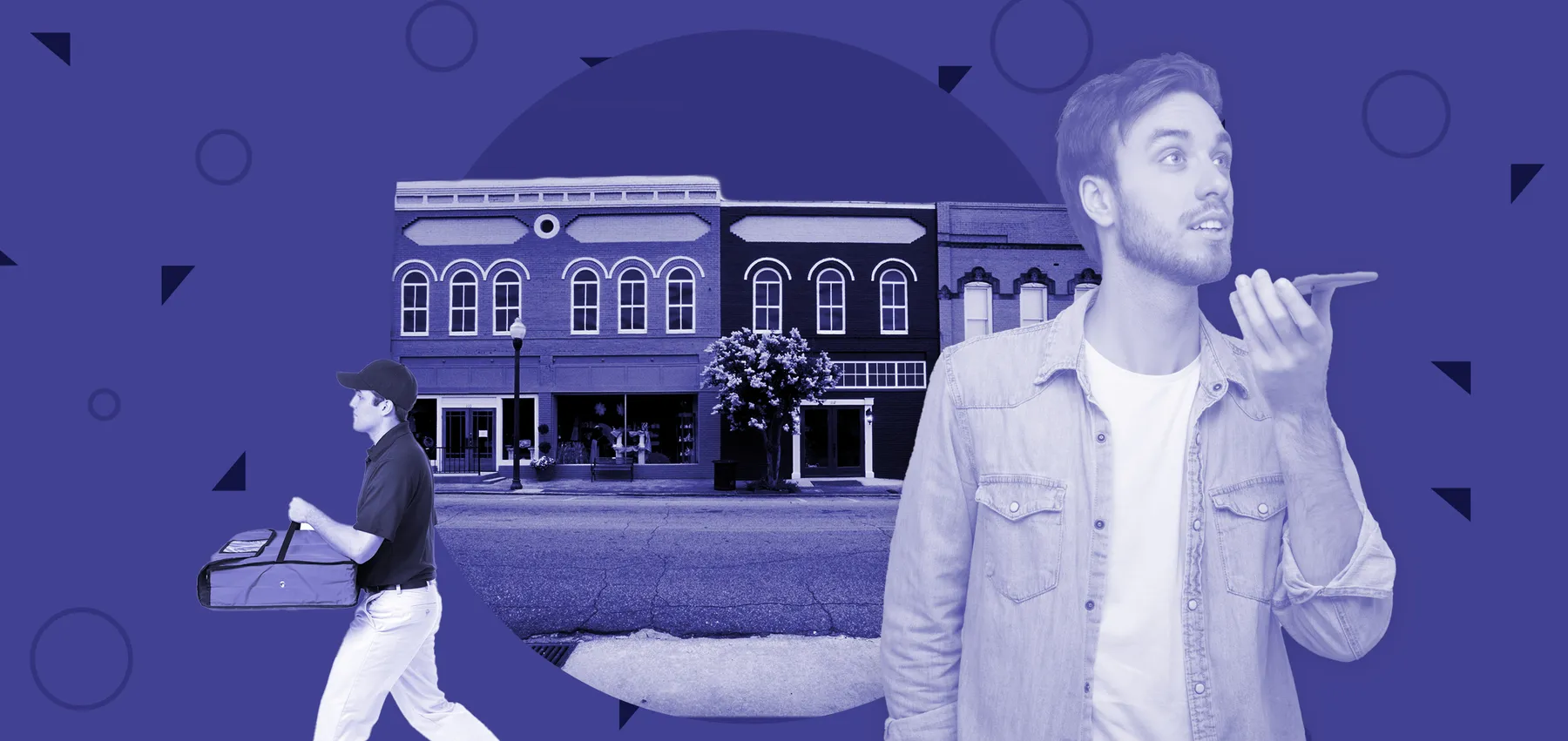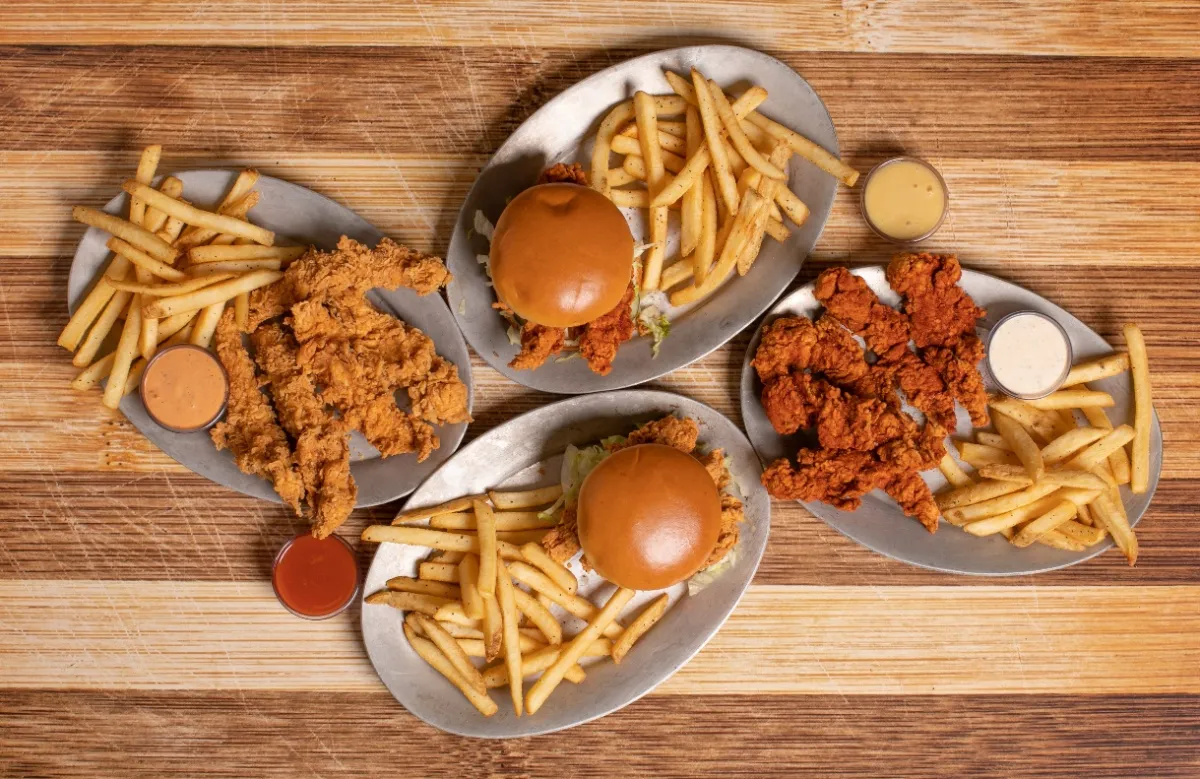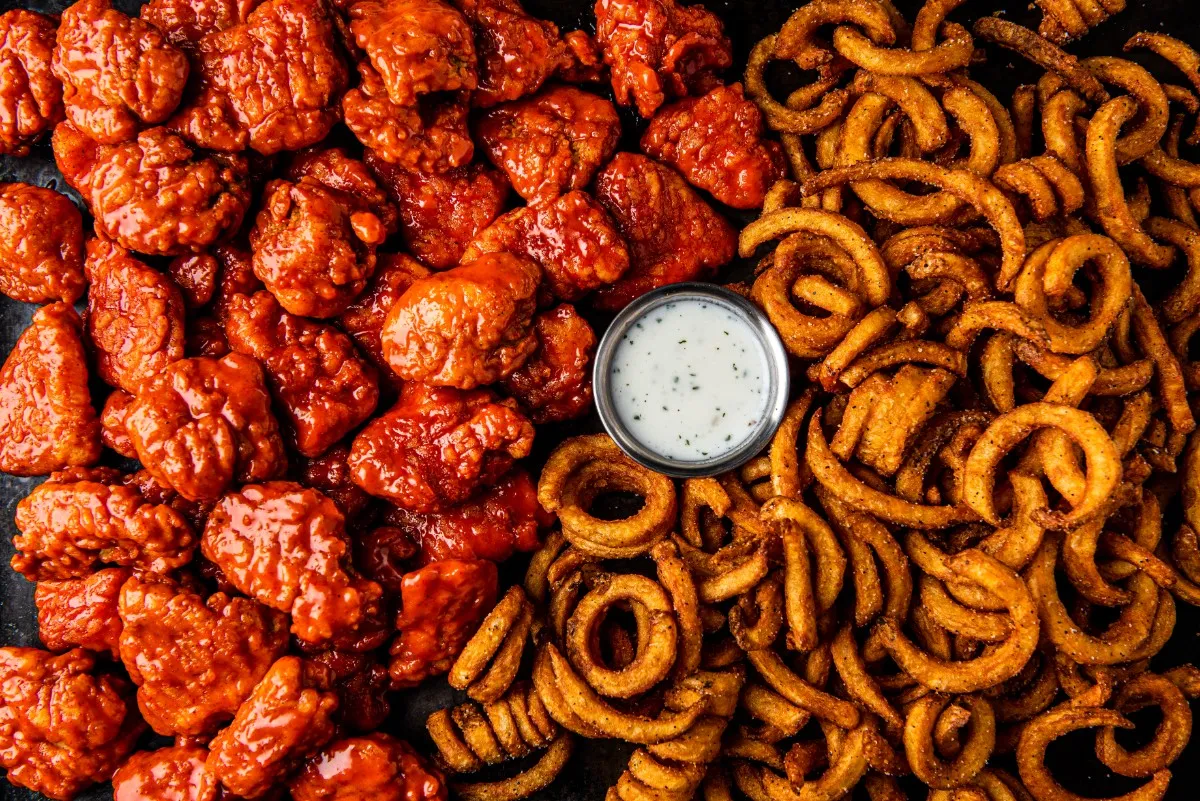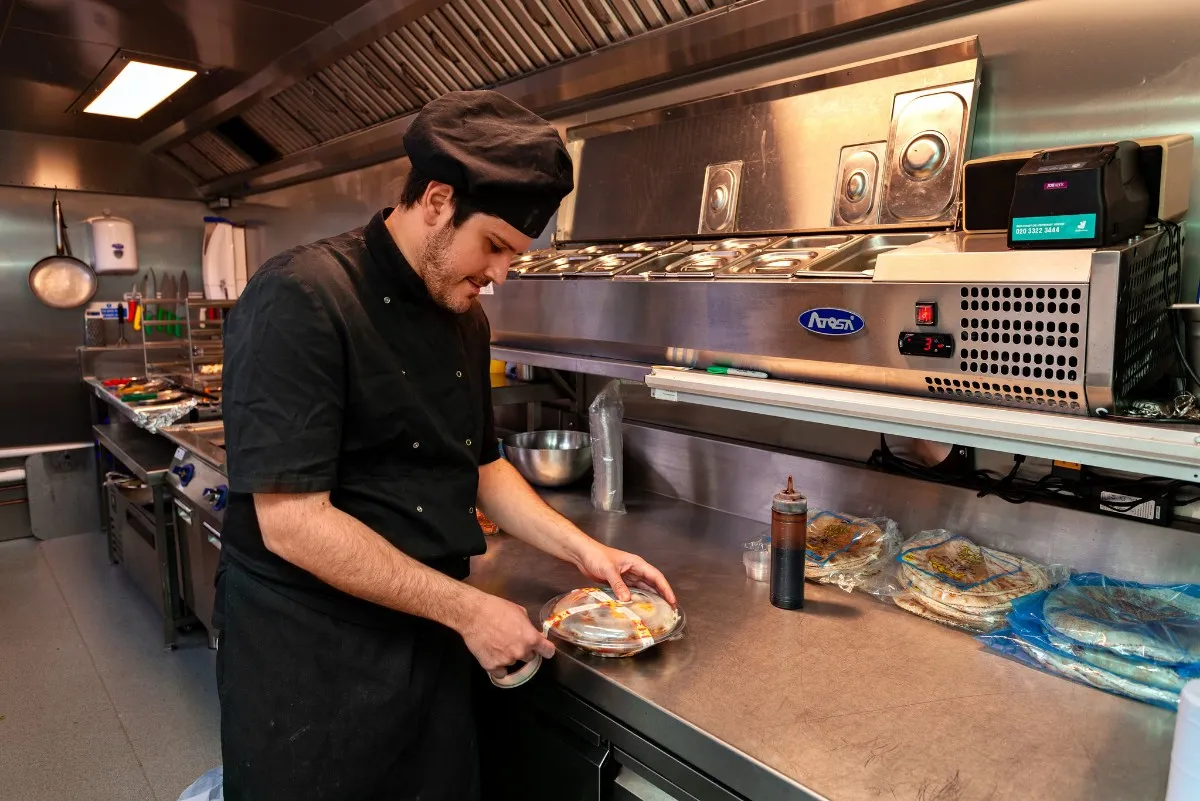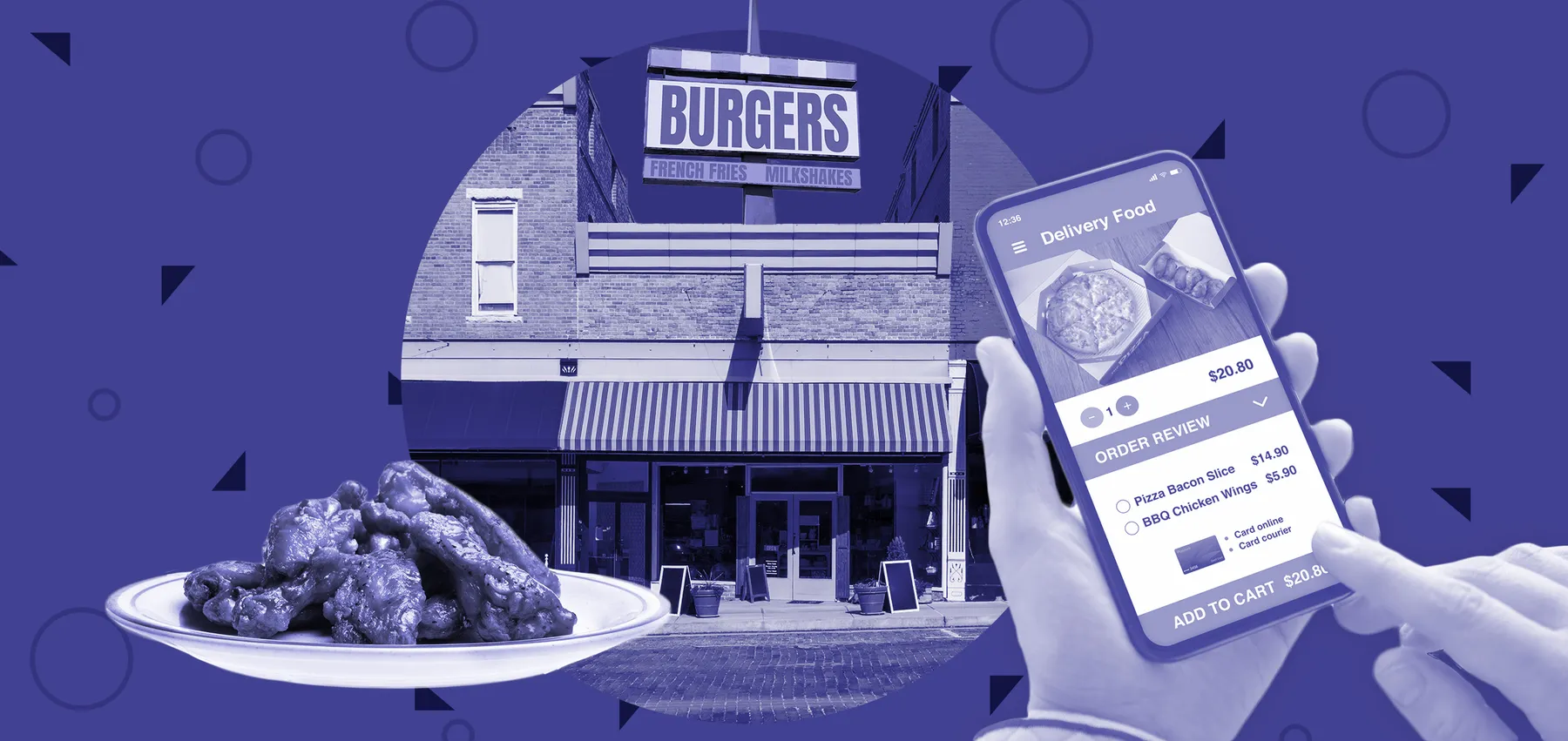
How ghost kitchens are helping major restaurants recoup lost revenue
Staring down double-digit same-store sales declines at the end of Q2 2020, Famous Dave's parent company BBQ Holdings knew it had to act quickly. The company, which closed an acquisition of 18 Granite City locations weeks before the pandemic hit, was forced to lay off 85% of its staff, manage its cash flow and shift to a to-go only strategy at the height of dining room closures.
Fortunately, it had been developing a strategy to expand and grow its operations without physical locations.
The company partnered with its existing franchisee, PDX Partners, during Q2 2020 to provide Famous Dave's food for takeout and via delivery service providers in two of PDX's Johnny Carino's restaurants in California.
"When you get hit in the face with a meteor, you have to react much faster than in any other time," BBQ Holdings CEO Jeff Crivello said.
In early October, it signed another franchisee agreement with Bluestone Hospitality to open Famous Dave's for delivery only inside an additional 25 Johnny Carino's restaurants throughout the country. The barbecue chain also launched a virtual brand called Hayward's Henhouse last fall in nine Famous Dave's restaurants, offering chicken wings, a chicken sandwich, a burger and fries, Crivello said.
"The evolution of moving up toward finding more efficient space was really just exacerbated by the pandemic," Crivello said. "These were all ideas that had been on the docket to do for the last couple of years. … Then all of a sudden, they get a rocket boost by the pandemic, because something has to happen."

And, so far, the results of its ghost kitchen operations have been positive, Crivello said.
"We're very happy, very pleased with the results," Crivello said. "This will really be a focus of our growth over the next year at least."
Famous Dave's isn't the only restaurant weathering the COVID-19 storm by expanding into ghost kitchens and virtual brands. Brinker International launched the virtual brand It's Just Wings last summer, while Fat Brands debuted a ghost kitchen with Epic Kitchens in Chicago last April that will operate Fatburger, Buffalo's Express, Hurricane Grill & Wings and Yalla Mediterranean concepts. This ghost kitchen adds to the 27 virtual kitchens already being run by existing Fat Brands franchisees.
Qdoba is also exploring in-house ghost kitchens or third-party shared kitchens at its corporate and franchised stores as part of its expansion plan, Tim Welsh, Qdoba's chief development officer, said. Smokey Bones, Muscle Maker Grill, Lemonade, Fazoli's, Chuck E. Cheese, Bloomin' Brands and Dine Brands have been experimenting with delivery-only kitchens as well.
While many of these brands were considering ghost kitchens or virtual brands pre-pandemic, current conditions have accelerated those plans. Restaurant foot traffic is currently down 50% year-over-year, peaking at a decline of 75% in April 2020, according to Zenreach data shared by CEO John Kelly.
"These are dramatic numbers for restaurants and the result is that they've had to be creative to adapt to the situation," Kelly said. "Consumers have already indicated a much stronger trepidation about dining out now than they did even eight months ago."
Restaurants that have adapted to delivery, outdoor dining and ghost kitchens — which have allowed restaurants to bring food closer to the consumer at a lower cost of production — are proving to be more successful than those that aren't, Kelly said.
Chains also hold an advantage over independents because they have the capital to partner with a ghost kitchen provider like Kitchen United or Cloud Kitchens or create their own virtual brands, Kathy Holt, sales and channel lead at consulting firm JPG Resources, said.
Major brands are able to expand their delivery footprints and take pressure off their existing kitchens by outsourcing delivery to a separate ghost kitchen, Holt said.
"[Ghost kitchens are] going to become a tool for cultivating more business, but it’s got to be a profitable tool for doing so," Holt said.

Outsourcing ghost kitchens to partner restaurants, third-party platforms
Working with third-party ghost kitchens or other restaurant brands is one way that chains are making virtual restaurants profitable, especially as they look to expand into new markets.
A Famous Dave's franchisee opened up a ghost restaurant inside a Cloud Kitchen space in April 2020, for example, providing access to a new metro market.
"It gives us the ability to deliver our barbecue closer to where there's density in the city of Chicago without having a 6,000-square-foot restaurant," Crivello said. The chain's closest restaurant is 30 minutes away, which can be a two-hour drive in traffic, he said.
Wow Bao has been partnering with independent restaurants, but on a much bigger scale, through the creation of its dark kitchens program. From April to October 2020, it opened ghost kitchens in 100 partner restaurants across 55 cities and 22 states. The company has a pipeline of 1,000 locations by the end of 2021 compared to 150 locations through its dark kitchens program.
The program, created in November 2019, was designed to give restaurants an alternative revenue stream by producing Wow Bao food out of their existing kitchens. The company was targeting operations like ice cream shops, caterers, hotel kitchens, doughnut and coffee shops, that often have a lot of down time, Geoff Alexander, Wow Bao CEO and president, said. Doughnut and coffee shops that often close early, for example, could use this partnership to create a new daypart, Alexander said.
Wow Bao items are made and shipped frozen to these locations and kitchen staff prepare the food, which is delivered via third-party delivery operators. Preparation doesn't require a stove hood and since the food is already fully cooked, it just has to be steamed, Alexander said.
Operators pay $495 for initial setup costs, and then receive online training and a box with pre-packaged frozen food and kitchen supplies, like a steamer. Wow Bao, which has partnerships with all of the major third-party delivery companies, will initiate turning on delivery with platforms of the operator's choice. Partner restaurants can then negotiate fees with the food delivery aggregators. Once everything is online, Wow Bao offers targeted Facebook and Instagram marketing, as well as helps drive orders by putting in links that will go straight to the third-party's site for the first six weeks, Alexander said.
Wow Bao's dark kitchen operations were expected to generate a minimum of $2,000 in weekly sales for partner restaurants, but multiple partners have surpassed $5,000 weekly sales with annual run rates of $260,000 and a projected bottom line of over $100,000, according to a press release. One operator in Minneapolis made $10,000 in a week in October 2020, Alexander said, adding that these are all incremental sales. While the initial operator investment is under $1,000, Alexander said it can be earned back within 10 to 14 days.
The pandemic accelerated this strategy so much that Wow Bao brought on Deborah Matelliano as vice president of dark kitchen development in October to head up this new arm of the business. Matelliano worked at Uber Eats during the past three years, where she scaled the company's virtual restaurant account segment in the U.S. and Canada. Wow Bao's ghost kitchens have not only created jobs at the fast casual chain, but have also added jobs in Wow Bao's supply chain for farmers and butchers, Alexander said.
The chain's traditional locations are mostly in Chicago, and it has several airport and college campus locations. It also has served its food at music festivals and offers its products in over 300 grocery stores. But this ghost kitchen strategy rapidly expanded the chain nationwide into towns that just weren't on its radar initially.
"We're in Sandy Falls, Idaho. We're in Greensboro, South Carolina," Alexander said. "It's really helping us grow our footprint and grow our name."
While this strategy was created pre-COVID-19, Alexander said he expects significant growth and interest from operators to last after the pandemic, especially since could help recoup revenue.
"No matter who you are in the restaurant industry, it is not a food cost issue. It is not a payroll issue. It's not a design issue. It's a sales issue," Alexander said. "That is what the problem is in the restaurant industry today. … You need sales and we are providing topline sales."

Using a brand's existing kitchen space
Chains are also making virtual restaurants profitable by using existing space within their own kitchens. Not only is Famous Dave's partnering with an outside brand, it is also using its Granite City restaurants to add Famous Dave’s ghost kitchens as well, with one opening in St. Cloud, Minnesota, this the fall.
Smokey Bones rolled out two virtual brands, The Wing Experience and The Burger Experience, in August 2020 at its 61 locations across the U.S., creating 122 virtual restaurants, according to a press release. Fat Brands and Brinker International are also using their existing restaurants to develop virtual restaurants.
Brinker International had been discussing the creation of a virtual brand for the better part of two years, but delivery scale wasn't where it needed to be to make the venture successful, Wade Allen, Brinker International’s chief digital officer, said.
Given the demand created by the pandemic, as well as the popularity of chicken wings, Brinker launched It's Just Wings during summer 2020 at 1,050 Chili's and Maggiano's restaurants through an exclusive partnership with DoorDash, Allen said.
Brinker had done a lot of the legwork pre-pandemic, determining that there was demand for chicken wings, which it got a taste of at Chili’s where it offers the menu item, Allen said. Brinker also benefited by having the proteins already available through existing partnerships with suppliers. The sauces took some time to develop and test to make sure they appeal to the customers, Allen said.
"Casual dining has been for a long time … underutilized," Allen said. "We had capacity in those kitchens. … We didn't have to lay down the capital investment or create a franchise model with these cloud kitchens or other kitchen companies to reach a consumer."
Ghost kitchens also allowed Brinker to work with its existing labor force, which was particularly helpful to keep employees on the job and keep them engaged with the brand during the pandemic, Allen said. Using this labor force allowed Brinker to provide an inexpensive, high-quality product to the guest, he said.
"I think [It's Just Wings] will grow into a very sizable brand. It already is from an annual perspective as it moves forward," Allen said. It's Just Wings is on track to exceed $150 million during its first year in operation, executives said during the company's Q4 2020 call in August.
While Brinker is considering new ideas and innovation, it has yet to announce any new virtual brands at this time, Allen said.
Fat Brands, on the other hand, has been using its multi-brand platform to allow crossover among franchisees. It has been co-branding and allowing operators to offer existing brands virtually so long as they co-mingle with the brick-and-mortar location, Andy Wiederhorn, Fat Brands CEO and president, said. The company also plans to offer virtual restaurants inside its newly acquired Johnny Rockets, Wiederhorn said.

A franchisee operating a Hurricane Grill, which mainly serves chicken wings, can sell Fatburgers in a market where there is no physical Fatburger, for example. Elevation Burger couldn't co-brand with Fatburger since the menus are too similar, but Elevation Burger could sell Fatburgers virtually.
With so many different brands, the company can also quickly deploy them to franchisees. The only issue is ensuring that franchisees have access to the necessary food items from their supply chains, he said.
"The ability to use a virtual restaurant gives our franchisees access to sell more products and make more money, and we get incremental royalty," Wiederhorn said.
The strategy has so far been popular among operators, with franchisees operating 27 virtual kitchens. But the plan isn't to turn these restaurants into food courts. They will either be a standalone concept or a co-branded concept with anything virtual being done for delivery only out the back door, Wiederhorn said.
"[Franchisees] are making a couple thousand dollars a week in incremental sales. So that really adds up," Wiederhorn said. "That's another hundred thousand dollars or more a year in sales from those virtual restaurant brands."

Catering will be the next stage of ghost kitchens
Ghost kitchens can also create another way to boost catering when that business comes back post-pandemic. Cracker Barrel plans to convert one of its Indianapolis locations into a catering-only kitchen, Sandra Cochran, Cracker Barrel CEO and president, said during the company's Q4 2020 call in September. That location will focus on just offering catering, potentially with new menu items, but it could process individual third-party orders, Cochran said. It may also be used to supplement nearby stores during peak holiday times when there can be strains on capacity, she said.
"We're going to explore how having this asset might allow us to even further expand the seasonal business that we're doing in our stores," Cochran said.
While catering at Famous Dave's is down 50% year-over-year, the company envisions a lot of catering coming out of a ghost kitchen, Crivello said. So far, the company has adjusted its marketing to focus on just delivery, but once catering is turned back on, it will ramp up this channel. Eventually, the company sees ghost kitchens having a mix of both delivery operations and catering coming out of the ghost kitchens, Crivello said.
But in the meantime, Famous Dave's will continue to focus on building up its ghost kitchen operations, especially as people become more used to ordering food on demand.
"Whether that food comes from a Granite City kitchen or a ghost Johnny Carino's kitchen or out of a Famous Dave’s kitchen, that doesn’t matter to [consumers]," Crivello said.
The company is working on more development agreements to expand Famous Dave's out of other brands as well as within its Granite City kitchens.
"I think over the next 12 months, our footprint will significantly increase," Crivello said. "There’s a lot of latent capacity in current restaurants that can produce our food. So we're excited about the future."

